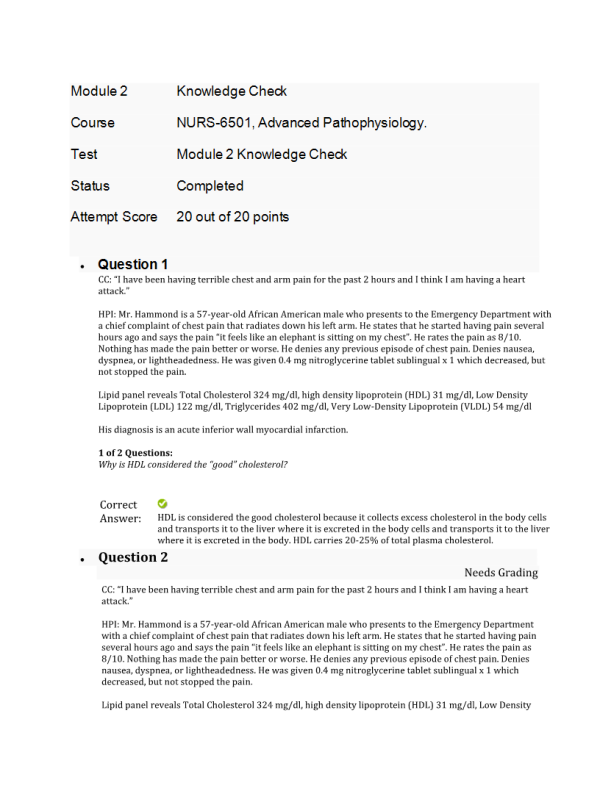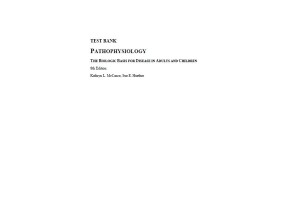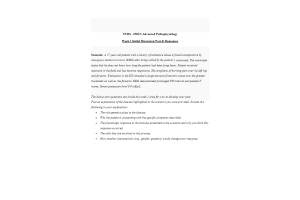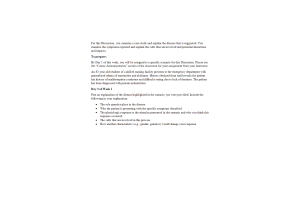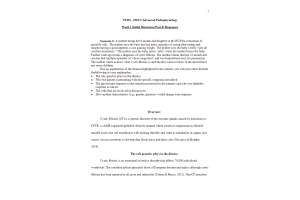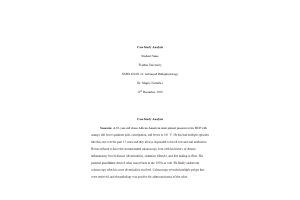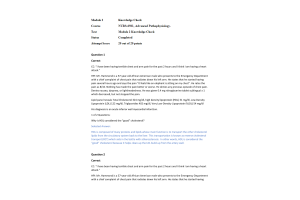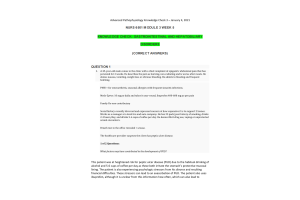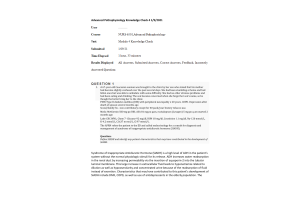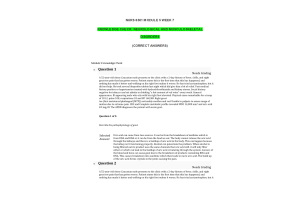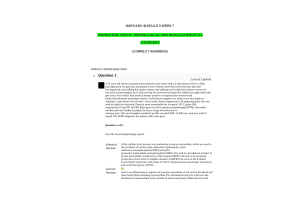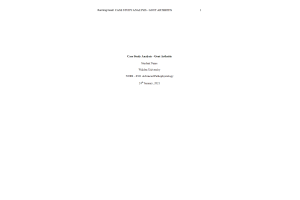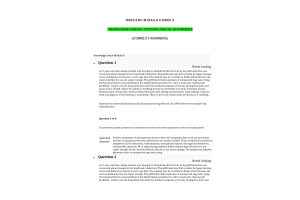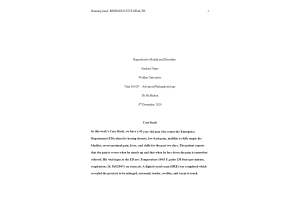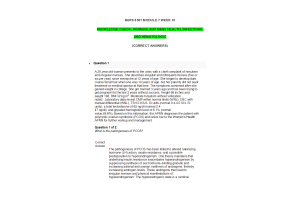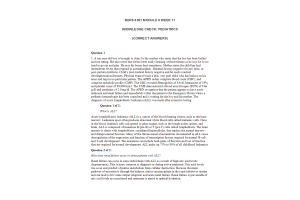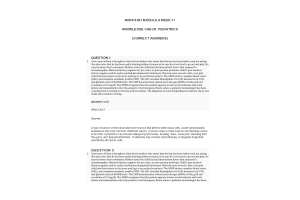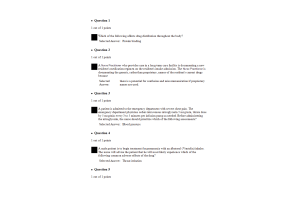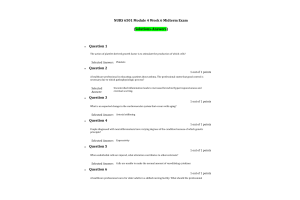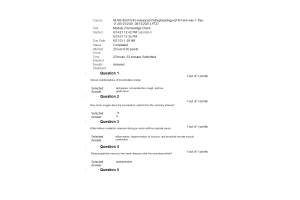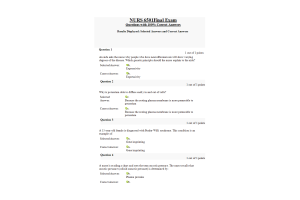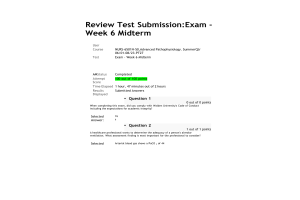NURS 6501 Week 3 Knowledge Check; Cardiovascular and Respiratory Disorders
- $20.00
- Question: CC: “I have been having terrible chest and arm pain for the past 2 hours and I think I am having a heart attack.”
- Question: CC: “I have been having terrible chest and arm pain for the past 2 hours and I think I am having a heart attack.”
- Question: A 45-year-old woman with a history of systemic lupus erythematosus (SLE) presents to the Emergency Room (ER) with complaints of sharp retrosternal chest pain that worsens with deep breathing or lying down. She reports a 3-day history of low-grade fever, listlessness and says she feels like she had the flu. Physical exam reveals tachycardia and a pleural friction rub. She was diagnosed with acute pericarditis.
- Question: A 15-year-old adolescent male comes to the clinic with his parents with a chief complaint of fever, nausea, vomiting, poorly localized abdominal pain, arthralgias, and “swollen lymph nodes”. States he has felt “lousy” for a couple weeks. The fevers have been as high as 102 F. His parents thought he had the flu and took him to an Urgent Care Center. He was given Tamiflu® and sent home. He says the Tamiflu didn’t seem to work. States had a slight sore throat a couple weeks ago and attributed it to the flu. Physical exam revealed thin young man who appears to be uncomfortable but not acutely ill. Posterior pharynx reddened and tonsils 3+ without exudate. + anterior and posterior cervical lymphadenopathy. Tachycardic and a new onset 2/6 high-pitched, crescendo-decrescendo systolic ejection murmur auscultated at the left sternal border. Rapid strep +. The patient was diagnosed with acute rheumatic heart disease (RHD).
- Question: The APRN sees a 74-year-old obese female patient who is 2 days post-op after undergoing left total hip replacement. The patient has had severe post op nausea and vomiting and has been unable to go to physical therapy. Her mucus membranes are dry. The patient says she feels like the skin on her left leg is too tight. Exam reveals a swollen, tense, and red colored calf. The patient has a duplex ultrasound which reveals the presence of a deep venous thrombosis (DVT).
- Question: A 45-year-old woman is 10 days status post partial small bowel resection for Crohn Disease and has been recuperating at home. She suddenly develops severe shortness of breath, becomes weak, and her blood pressure drops to 80/40 mmHg (previous readings ~130/80s mmHg). The pulse oximetry is 89% on room air. The APRN suspects the patient experienced a massive pulmonary embolus.
- Question: A 45-year-old woman is 10 days status post partial small bowel resection for Crohn Disease and has been recuperating at home. She suddenly develops severe shortness of breath, becomes weak, and her blood pressure drops to 80/40 mmHg (previous readings ~130/80s mmHg). The pulse oximetry is 89% on room air. While waiting for the Emergency Medical Service (EMS) to arrive, the APRN places EKG leads and the EKG demonstrates right ventricular strain.
- Question: A 12-year-old girl is brought to the Emergency Room (ER) by her mother with complaints of shortness of breath, wheezing, tachypnea, tachycardia, and a non-productive cough. The mother states they had just come from a fall festival where the entire family enjoyed a hayride. The symptoms began shortly after they left the festival but got better a couple hours after they returned home. The symptoms began again about 6 hours later and seem to be worse. The mother states there is no history of allergies or frequent respiratory infections. The child is up to date on all vaccinations. The child was diagnosed with asthma. The nurse practitioner explained to the mother that her child was exhibiting symptoms of asthma, and probably had an early asthmatic response and a late asthmatic response.
- Question: A 12-year-old girl is brought to the Emergency Room (ER) by her mother with complaints of shortness of breath, wheezing, tachypnea, tachycardia, and a non-productive cough. The mother states they had just come from a fall festival where the entire family enjoyed a hayride. The symptoms began shortly after they left the festival but got better a couple hours after they returned home. The symptoms began again about 6 hours later and seem to be worse. The mother states there is no history of allergies or frequent respiratory infections. The child is up to date on all vaccinations. The child was diagnosed with asthma. The nurse practitioner explained to the mother that her child was exhibiting symptoms of asthma, and probably had an early asthmatic response and a late asthmatic response.
- Question: A 64-year-old man with a 40 pack/year history of cigarette smoking has been diagnosed with emphysema. He asks the APRN if this means he has COPD.
- Question: A 64-year-old man with a 40 pack/year history of cigarette smoking has been diagnosed with emphysema. He asks the APRN if this means he has COPD.
- Question: Mr. Jones is a 78-year-old gentleman who presents to the clinic with a chief complaint of fever, chills and cough. He also reports some dyspnea. He has a history of right sided CVA, COPD, dyslipidemia, and HTN. Current medications include atorvastatin 40 mg po qhs, lisinopril, and fluticasone/salmeterol. He reports more use of his albuterol rescue inhaler.
- Question: A 64-year-old woman with moderately severe COPD comes to the pulmonary clinic for her quarterly checkup. The APRN reviewing the chart notes that the patient has lost 5% of her body weight since her last visit. The APRN questions the patient and patient admits to not having much of an appetite and she also admits to missing some meals because it “takes too much work” to cook and consume dinner.
